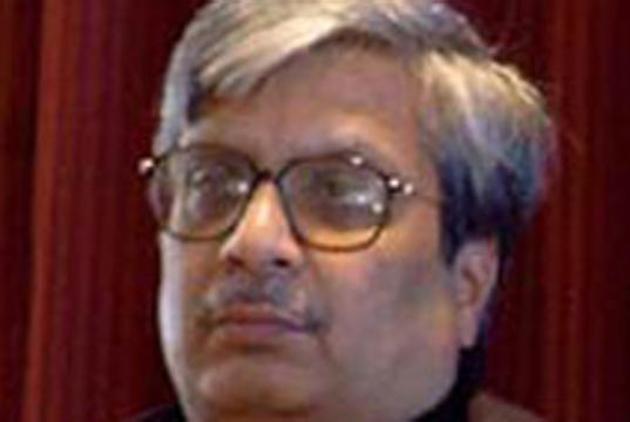Column | Shackled universities cannot pursue excellence
To raise financial resources, universities should not be coerced into running skill-based courses rather than promoting research. The job that can be performed by IITs, ITIs or polytechnics must not be assigned to the universities
The crisis in higher education and our public universities has reached a new high. There are noises that research in these institutes lacks creativity and innovation, and hence they should be mandated to provide education that is linked with the industry and commercial economy.

This crisis is attributed to the neo-liberal path of development, and therefore it’s imperative to go in for structural transformation. This in essence is no choice. On the other hand, we look for practical solutions, such as fee hike or vocationalisation of the varsities to meet the deficits and pay salaries to the teachers. This, of course, is a trap leading to virtually no choice.
To put it in the words of our first Prime Minister, Jawaharlal Nehru: ‘Over-theorisation is alienating and excessive reliance on practical knowledge produces tragedies.’ As such, the need is to apply correctives to these rather extreme remedies. These correctives must be competent enough to moderate the opposing claims of market efficiency with those of social equity and justice.
The universities are set up through legislations. So, it is fairly clear that educational innovation and excellent standards are inextricably linked to equity of access and democratisation of the university structure. However, there have been thoughtless attempts to erode the autonomy of universities, and the grants to these institutes have been tied to a number of conditionalities.
Tied grants the bane
The universities have to raise a specific percentage of funds from their own sources to become eligible for sanctioned grants. They have to either raise the fee or start vocational courses or implement teaching and non-teaching staff ratios as prescribed by the University Grants Commission.
To tie the grants with such conditions defeats the very purpose for which universities have been created, i.e. to achieve excellence and nurture creativity and innovation.
The constitution-framers desired that higher education must play a pivotal role in social transformation. Rather than making students pay to sustain the university, it should pay and provide for the financially weaker students. This principle should continue to be the guiding policy on fees, scholarships and cost of living on the campuses. The need, therefore, is to enlarge the scope of merit-cum-means scholarships. The enlarged pool of students will lay the foundation of innovation and creativity.
To raise financial resources, universities should not be coerced into running skill-based courses rather than promoting research. The job that can be performed by IITs, ITIs or polytechnics must not be assigned to the universities. The worst-hit have been the departments of social sciences and humanities. Already, the students in social sciences opting for PhD have reduced to merely 2.3% as compared to 22% in agriculture and 11.7% in engineering.
The grants have also been tied with the teaching and non-teaching staff ratios. The Panjab University (PU) vice-chancellor has rightly pointed out that it would be difficult to bring down the ratio, as it has to cater to the requirements of the colleges in terms of affiliation, conduct of examination and other related issues.
Autonomy at stake
All these foisted conditionalities seem to have been evaluated by the single-minded obsession towards sustainability of the efficiency of financial allocations. These violate and erode the autonomy of the universities, vitiate the student-teacher relations and ‘activise partisan pressures which stifle intellectual creativity’.
The need, therefore, is to move away from the tied grants to autonomous grants.
One size doesn’t fit all
Each university has its own set of problems. Attempts to standardise their functioning in terms of financial allocations are likely to prove counterproductive.
The peculiar circumstances prevailing in this region have adversely affected the functioning of PU, which was set up in Lahore in 1882. Two important accidents of history, i.e. the Partition of India in 1947, and the reorganisation of Punjab in 1966, are largely responsible for the present crisis.
Non-resolution of the conflict arising out of the reorganisation has adversely affected PU’s sustainability. The Haryana government stopped funding the varsity and ordered affiliation of its colleges with its own universities. On the other hand, the Punjab government contributes merely 8% of the budget. And now the Centre has also made its grants conditional.
The debate on whether PU should be a central university or funded by the Centre or by both the Centre and state has to be located in the unresolved issues between the Centre and the states of Punjab and Haryana. For a long-term solution, it would be desirable that the PU chancellor, vice-president Hamid Ansari, takes the lead and brings all stakeholders on board.
It is fairly well known that fragmented diagnosis produces tunnel vision, which is further constrained by what Churchill had said: ‘We will do the right things having exhausted all other possibilities.’
In this context, enough damage has already been done by various misadventures, including politically partisan interventions, fee hike and legal remedies. Before it becomes irreparable, right kind of solutions may be initiated.
The tendency towards centralisation and standardisation must be abandoned. The university has efficient teachers, board of studies, academic council and senate and other associated distinguished educationists, and therefore, is fully equipped to tell what is needed rather than face ‘some dead bureaucratic attempt to tame the university autonomy’.
letterschd@hindustantimes.com
(The writer is director, Institute for Development and Communication, and member of the Panjab University Senate)



